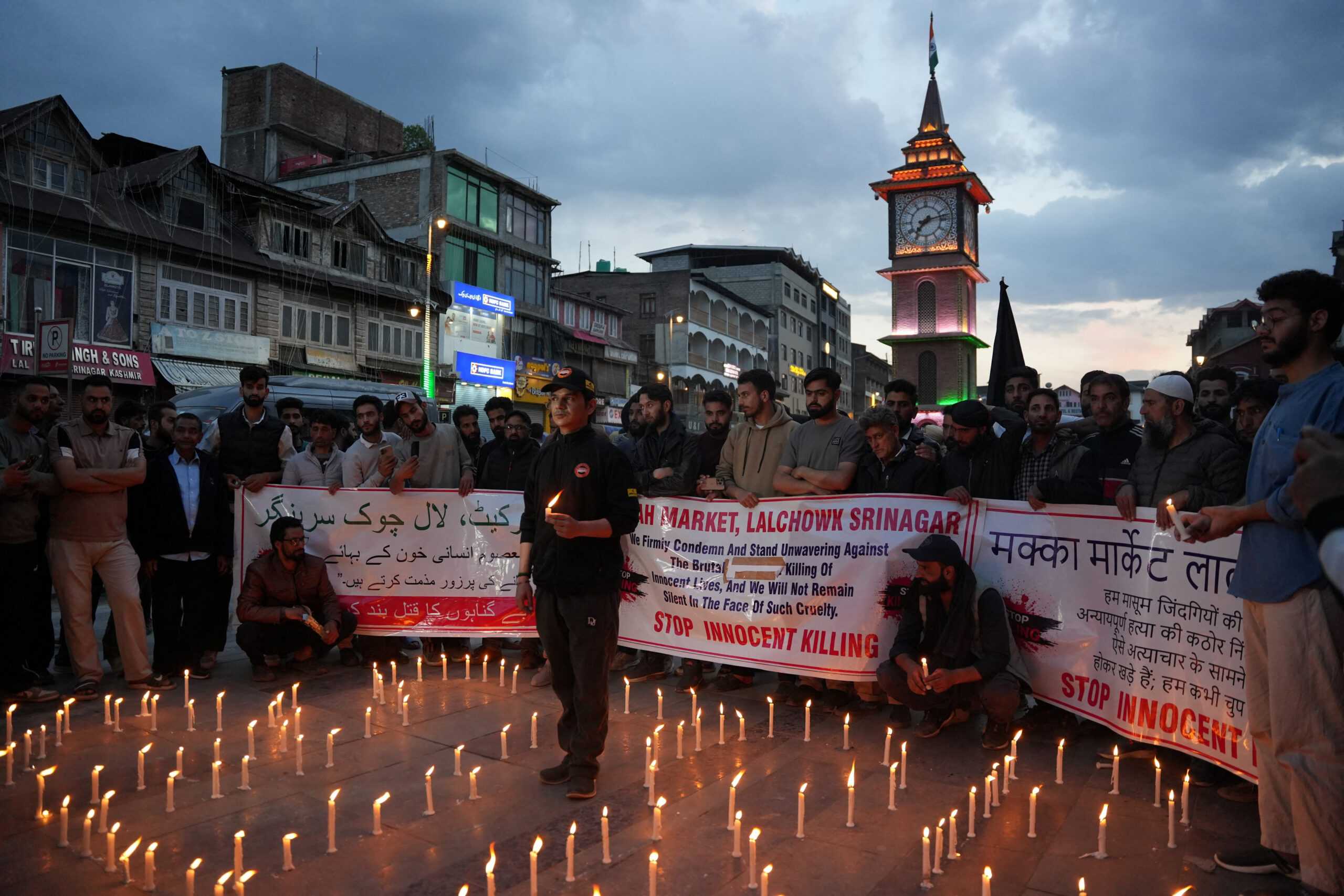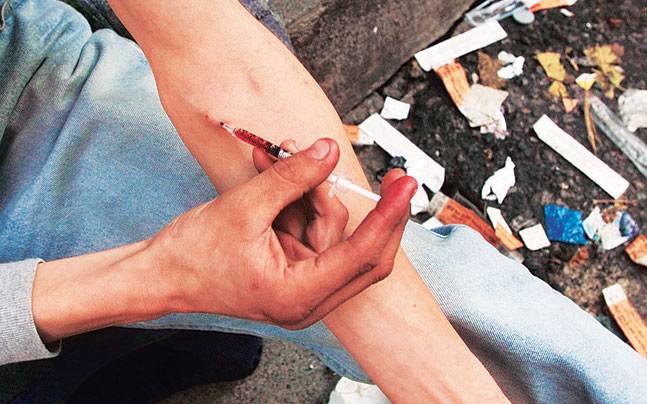Kashmir’s Cry for Peace: Unraveling the Pahalgam Tragedy and Its Aftermath
By: Javid Amin
Srinagar 24 April 2025: On April 22, 2025, the serene meadows of Pahalgam in Kashmir were marred by a heinous act of terrorism that claimed the lives of 28 innocent tourists and injured over a dozen others. This tragedy not only shook the nation but also cast a long shadow over the valley’s socio-economic and political landscape. As Kashmir grapples with the aftermath, there’s an urgent need for responsible journalism, national unity, and a reaffirmation of the region’s enduring spirit of hospitality and peace.
The Pahalgam Massacre: A Detailed Account
The Attack Unfolds
On that fateful afternoon, around 2:30 PM, armed terrorists descended upon Baisaran, a popular tourist spot near Pahalgam, often referred to as ‘mini Switzerland’ for its picturesque landscapes. Eyewitnesses recount the horror as gunmen indiscriminately opened fire on tourists enjoying the serene environment, leading to chaos and bloodshed.
Victims and Casualties
The attack resulted in the death of 28 individuals, including 25 Indian citizens and one Nepalese tourist. Among the deceased was Lieutenant Vinay Narwal, a young Navy officer from Haryana, who was on his honeymoon. His tragic demise underscores the indiscriminate nature of the violence that spared neither age nor profession.
Perpetrators and Modus Operandi
The Resistance Front (TRF), an offshoot of the Pakistan-based Lashkar-e-Taiba, claimed responsibility for the attack. Investigations reveal that the assailants, including two local terrorists, Adil Guree and Aasif Shaikh, meticulously planned the assault, choosing Baisaran for its lack of security presence and difficult terrain, which hindered rescue operations.
Immediate Aftermath and National Response
Government’s Reaction
Prime Minister Narendra Modi condemned the attack as a “heinous act” and vowed to bring the perpetrators to justice. He cut short his visit to Saudi Arabia to address the crisis. Union Home Minister Amit Shah visited the attack site and met with the victims’ families, assuring them of the government’s support.
Security Measures
In response to the attack, security was heightened across the region, with Punjab issuing a red alert and intensifying checks at interstate crossings. Over 160 institutions in Punjab, where Kashmiri students study, saw increased security to prevent any retaliatory incidents.
Socio-Economic Impact on Kashmir
Tourism Industry in Jeopardy
Kashmir’s economy, heavily reliant on tourism, faced a severe blow as cancellations poured in following the attack. Local businesses, from hotel owners to artisans, expressed concerns over the potential long-term impact on their livelihoods.
Harassment of Kashmiris Nationwide
Reports emerged of Kashmiri students and businesspersons facing harassment and eviction in various parts of India. Such incidents not only violate the principles of humanity and justice but also risk creating irreparable social divides.
Media’s Role: Sensationalism vs. Responsibility
The Pitfalls of Sensational Reporting
Certain media outlets were criticized for sensationalizing the tragedy, using graphic visuals and inflammatory rhetoric that fueled hatred and mistrust. Such reporting undermines the spirit of journalism and exacerbates divisions within the country.
The Need for Ethical Journalism
There’s an urgent call for media houses to focus on responsible reporting, emphasizing facts over fear, and promoting narratives that foster unity and resilience.
Voices from Kashmir: Grief, Condemnation, and a Plea for Unity
Collective Mourning
The people of Kashmir collectively mourned the loss of innocent lives. Political parties and traders’ unions called for a complete shutdown in the valley to honor the victims and condemn the attack.
Reaffirming Kashmir’s Identity
Kashmiris expressed outrage over the attack, emphasizing that such acts of violence are antithetical to their culture and values. They reiterated that the perpetrators do not represent the valley or its people.
International Reactions and Diplomatic Fallout
Global Condemnation
World leaders, including US President Donald Trump and Russian President Vladimir Putin, condemned the attack and expressed solidarity with India.
Strained Indo-Pak Relations
In the wake of the attack, India downgraded diplomatic ties with Pakistan, recalling defense staff and suspending the Indus Waters Treaty. Pakistan responded by suspending all bilateral treaties with India, further escalating tensions between the two nations.
A Call to Action: Unity, Responsibility, and Resilience
Supporting Kashmiris Nationwide
It’s imperative for citizens across India to support and protect Kashmiris living outside the valley, ensuring their safety and dignity.
Promoting Responsible Media Practices
Media outlets must prioritize ethical journalism, avoiding narratives that fuel hatred or exploit tragedy.
Fostering National Unity
In times of crisis, unity becomes our strongest asset. By standing together, we can honor the victims more meaningfully than any slogan or broadcast ever could. Unity isn’t about uniformity—it’s about shared humanity. It’s about Hindus, Muslims, Sikhs, Christians, and others from every corner of India refusing to let a few bullets divide 1.4 billion hearts.
Let this tragedy not sow the seeds of suspicion, but rather grow roots of understanding. Let it not fan the flames of communalism, but forge bonds that extremists will forever fail to break.
Kashmir’s Eternal Spirit: Peace, Not Peril
The Valley of Hospitality
Despite the recurring turbulence, Kashmir has always opened its arms to visitors. Whether it’s the scent of saffron from Pampore, the warmth of a shikara ride on Dal Lake, or the laughter echoing through Gulmarg’s snowy slopes—this land breathes hospitality. The tragic events in Pahalgam should never define this region or its people.
The world needs to know: Kashmiris wept too. Mothers lit candles. Fathers closed shops. Children stayed home, mourning strangers they never met but considered guests. Because in Kashmir, “Mehman Nawazi” (hospitality) is not a custom—it’s sacred.
Condemning Terror from Within
Kashmiris have stood against terrorism—loudly, clearly, and repeatedly. From Imams condemning violence in Friday sermons, to student unions organizing peace marches, the local voice has consistently disassociated from militancy.
Many ask, “Why don’t Kashmiris speak up?” The truth is—they do. Loudly. But the national spotlight rarely shines on their condemnation. It’s high time we amplified these voices rather than burying them under the noise of TV studio debates.
What We Must Remember
-
The terrorists were few; Kashmiris are millions.
-
The bullets killed 28; the backlash threatens thousands.
-
The pain of one region must never become the prejudice of another.
Looking Forward: Healing Through Humanity
Community Solidarity Drives
In cities like Delhi, Bengaluru, and Pune, local organizations are launching solidarity drives—welcoming Kashmiri students, providing legal support for anyone harassed, and urging civil society to remain vigilant against communal hate.
This must be replicated everywhere. Each act of kindness pushes back against terror.
Reviving Tourism Safely
The Jammu & Kashmir administration is working to restore tourist confidence through enhanced security, helpline networks, and collaboration with travel companies. Responsible tourism campaigns are already underway to assure visitors: “Kashmir is grieving, but Kashmir is ready to heal—with you.”
Final Reflections: In the Name of the Victims
Let us remember the names, faces, and stories of those who lost their lives not as statistics but as humans.
Let us light candles not just in memory, but in defiance—against terror, against hate, against division.
Let us write articles, post messages, and speak in every language of love to declare: “You tried to break us, but we are unbroken.”
Bottom-Line: Kashmir’s Cry Is India’s Call
The Pahalgam attack is not just a Kashmir tragedy. It’s a national wound that demands national healing. It calls for more than outrage—it calls for introspection, compassion, and collective courage.
We cannot allow terrorists to rewrite the identity of Kashmiris. We cannot let hate hijack grief. And we must not turn our backs on our own.
Kashmir mourns—but stands unbroken.
India weeps—but must not divide.
Terror strikes—but peace must answer.



